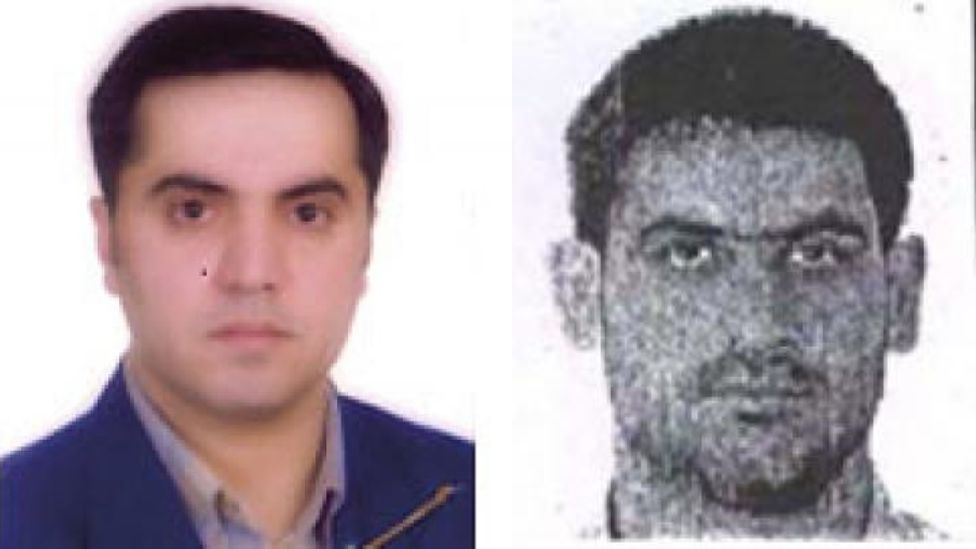A UN-backed court has convicted on appeal another two Hezbollah members of involvement in the 2005 assassination of former Lebanese PM Rafik Hariri.
The Special Tribunal for Lebanon (STL) found Hassan Habib Merhi and Hussein Oneissi guilty in absentia of being accomplices to the Beirut bomb attack.
Appeals judges agreed with prosecutors that the trial chamber had “erred” by ruling there was not enough evidence.
A third Hezbollah member, Salim Ayyash, was convicted in December 2020.
Hezbollah has denied any involvement in the assassination, and the trial judges concluded that no evidence implicated the Shia Muslim militant group’s leaders.

Rafik Hariri, a Sunni Muslim, was a billionaire businessman who served as prime minister of Lebanon five times following the 1975-90 civil war.
His last term in office ended in 2004, after which he aligned himself with the opposition in parliament and supported calls for Hezbollah’s backer Syria to withdraw its forces from Lebanon.
On 14 February 2005, Hariri was travelling in a motorcade past the St George Hotel in downtown Beirut when a bomb hidden in a van exploded, killing him and 21 other people.
The assassination brought tens of thousands of demonstrators onto the streets in protest against the pro-Syrian government, with the finger of blame for the assassination pointed at Lebanon’s neighbour. The government resigned two weeks later and Syrian troops pulled out that April.

After collecting evidence, the UN and Lebanon set up the Netherlands-based STL in 2007 to investigate the bombing. Four Hezbollah operatives were ultimately put on trial in absentia – Ayyash, Merhi, Oneissi and Assad Hassan Sabra. A top Hezbollah military commander, Mustafa Badreddine, was also indicted until he was killed in Syria in 2016.
The prosecution’s case relied on the analysis of calls between mobile phones that it said were used to plan, prepare and execute the attack.
Ayyash was accused of co-ordinating the physical perpetration of the attack and, together with Mustafa Badreddine, the surveillance of Hariri.
The prosecution said that shortly after the attack Merhi and Oneissi participated in the distribution of a video-taped false claim of responsibility made by a Palestinian man on behalf of a fictional Sunni fundamentalist group, and ensured that it was broadcast on Al Jazeera TV.
In 2020, the STL trial chamber found Ayyash guilty of five charges, including committing a terrorist act by means of an explosive device and the intentional murder of Hariri. But Merhi, Oneissi and Assad Sabra were cleared of all charges, with the judges saying there was not enough evidence to prove their guilt beyond reasonable doubt.

The prosecution filed appeals against the acquittals of Merhi and Oneissi last year, and on Thursday the appeals chamber found that the trial judges had “committed errors of law invalidating the judgment and errors of fact occasioning a miscarriage of justice”, an STL statement said.
The appeals chamber unanimously reversed Merhi and Oneissi’s acquittals and found them guilty of conspiracy aimed at committing a terrorist act, being an accomplice to the committing a terrorist act, being an accomplice to intentional homicide, and being an accomplice to attempted intentional homicide.
Arrest warrants have been issued for the two men, whose whereabouts are not known.
“The acts for which they have been convicted were callous and manipulative, designed not only to shield the real perpetrators from justice but to deceive the Lebanese people,” said Prosecutor Norman Farrell of Canada.
“But accountability does not end with their conviction. Merhi and Oneissi, along with their co-conspirator Salim Ayyash remain fugitives. Justice demands that they be arrested,” he added.



































